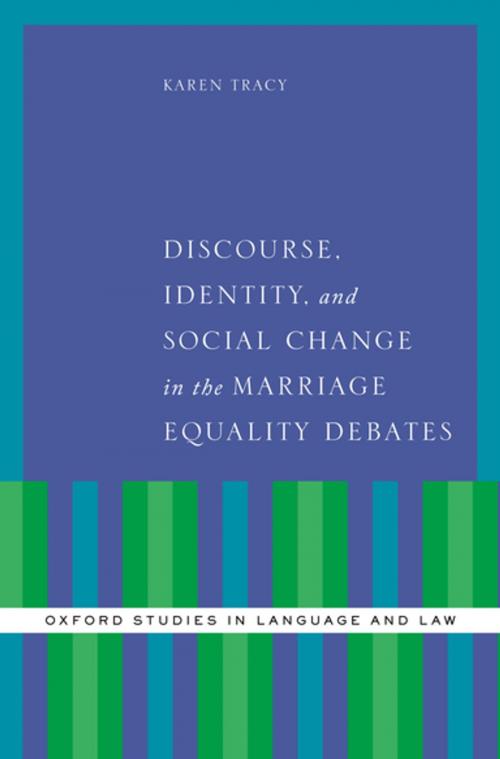Discourse, Identity, and Social Change in the Marriage Equality Debates
Nonfiction, Reference & Language, Law, Gender & the Law, Family Law, Language Arts, Linguistics| Author: | Karen Tracy | ISBN: | 9780190625412 |
| Publisher: | Oxford University Press | Publication: | April 15, 2016 |
| Imprint: | Oxford University Press | Language: | English |
| Author: | Karen Tracy |
| ISBN: | 9780190625412 |
| Publisher: | Oxford University Press |
| Publication: | April 15, 2016 |
| Imprint: | Oxford University Press |
| Language: | English |
Karen Tracy examines the identity-work of judges and attorneys in state supreme courts as they debated the legality of existing marriage laws. Exchanges in state appellate courts are juxtaposed with the talk that occurred between citizens and elected officials in legislative hearings considering whether to revise state marriage laws. The book's analysis spans ten years, beginning with the U.S. Supreme Court's overturning of sodomy laws in 2003 and ending in 2013 when the U.S. Supreme Court declared the federal government's Defense of Marriage Act (DOMA) unconstitutional, and it particularly focuses on how social change was accomplished through and reflected in these law-making and law-interpreting discourses. Focal materials are the eight cases about same-sex marriage and civil unions that were argued in state supreme courts between 2005 and 2009, and six of a larger number of hearings that occurred in state judicial committees considering bills regarding who should be able to marry. Tracy concludes with analysis of the 2011 Senate Judiciary Committee Hearing on DOMA, comparing it to the initial 1996 hearing and to the 2013 Supreme Court oral argument about it. The book shows that social change occurred as the public discourse that treated sexual orientation as a "lifestyle" was replaced with a public discourse of gays and lesbians as a legitimate category of citizen.
Karen Tracy examines the identity-work of judges and attorneys in state supreme courts as they debated the legality of existing marriage laws. Exchanges in state appellate courts are juxtaposed with the talk that occurred between citizens and elected officials in legislative hearings considering whether to revise state marriage laws. The book's analysis spans ten years, beginning with the U.S. Supreme Court's overturning of sodomy laws in 2003 and ending in 2013 when the U.S. Supreme Court declared the federal government's Defense of Marriage Act (DOMA) unconstitutional, and it particularly focuses on how social change was accomplished through and reflected in these law-making and law-interpreting discourses. Focal materials are the eight cases about same-sex marriage and civil unions that were argued in state supreme courts between 2005 and 2009, and six of a larger number of hearings that occurred in state judicial committees considering bills regarding who should be able to marry. Tracy concludes with analysis of the 2011 Senate Judiciary Committee Hearing on DOMA, comparing it to the initial 1996 hearing and to the 2013 Supreme Court oral argument about it. The book shows that social change occurred as the public discourse that treated sexual orientation as a "lifestyle" was replaced with a public discourse of gays and lesbians as a legitimate category of citizen.















